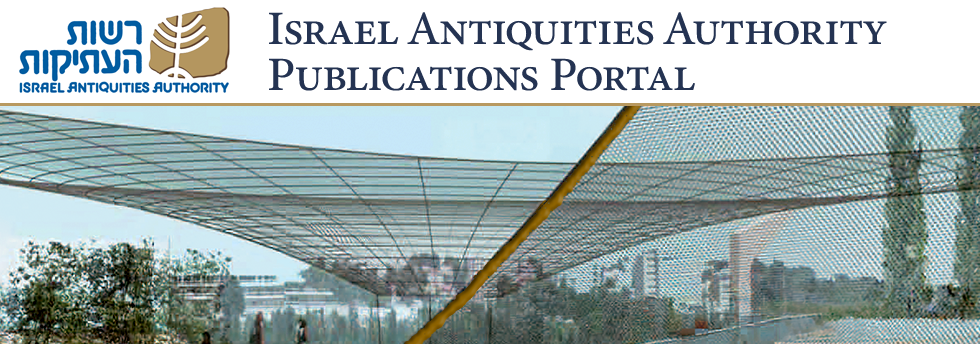Files
Download Full Text (49.6 MB)
Download Front Matter (981 KB)
Download Introduction (4.4 MB)
Download Chapter 1: Sinaitic Monasticism as Reflected in Historical Sources (842 KB)
Download Chapter 2: The Monastic Center around Mount Sinai (19.3 MB)
Download Chapter 3: The Pharan Center (5.5 MB)
Download Chapter 4: The Hermit Monastic Settlements at Raitho (1.7 MB)
Download Chapter 5: Farms and Farmhouses (482 KB)
Download Chapter 6: Discussion, Conclusions and Summary (4.5 MB)
Download Historical Sources (663 KB)
Download References (971 KB)
Download References – Hebrew Publications (421 KB)
Download Appendix 1: Byzantine Pottery from South Sinai (6.4 MB)
Download Appendix 2: Glass from Monasteries and Chapels in South Sinai (2.2 MB)
Download Appendix 3: A Textile from Deir Abu Mghar (275 KB)
Download List of Sites (300 KB)
Download Large Map: The South Sinai Monastaries in the Byzantine Period (854 KB)
Description
The early Byzantine period, especially the fourth–seventh centuries CE, saw the prosperity of a Christian monastic movement in South Sinai. This community was centered around Jebel Musa, which Christian tradition identified with Mt. Sinai. This study’s main aims are to present the relevant archaeological material, based on fieldwork carried out in the late 1970s, to publish all the sites defined as monastic settlements in South Sinai, and to provide a general picture of Sinai monasticism based on the archaeological data and historical sources. The historical sources are analyzed only when they contribute to our understanding of sites; the monastic way of life and beliefs is considered as a backdrop, imperative to an understanding of the structure of the monastic settlements.
EISBN
9789654065498
Publication Date
2000
Publisher
Israel Antiquities Authority
City
Jerusalem
Disciplines
Historic Preservation and Conservation | History of Art, Architecture, and Archaeology | Life Sciences | Religion | Social and Behavioral Sciences
Recommended Citation
Dahari, Uzi, "9 | Monastic Settlements in South Sinai in the Byzantine Period: The Archaeological Remains" (2000). IAA Reports—Monograph Series of the Israel Antiquities Authority. 67.
DOI: https://doi.org/10.69704/iaaRepV000.1996.67
https://publications.iaa.org.il/iaareports/67

Included in
Historic Preservation and Conservation Commons, History of Art, Architecture, and Archaeology Commons, Life Sciences Commons, Religion Commons, Social and Behavioral Sciences Commons



